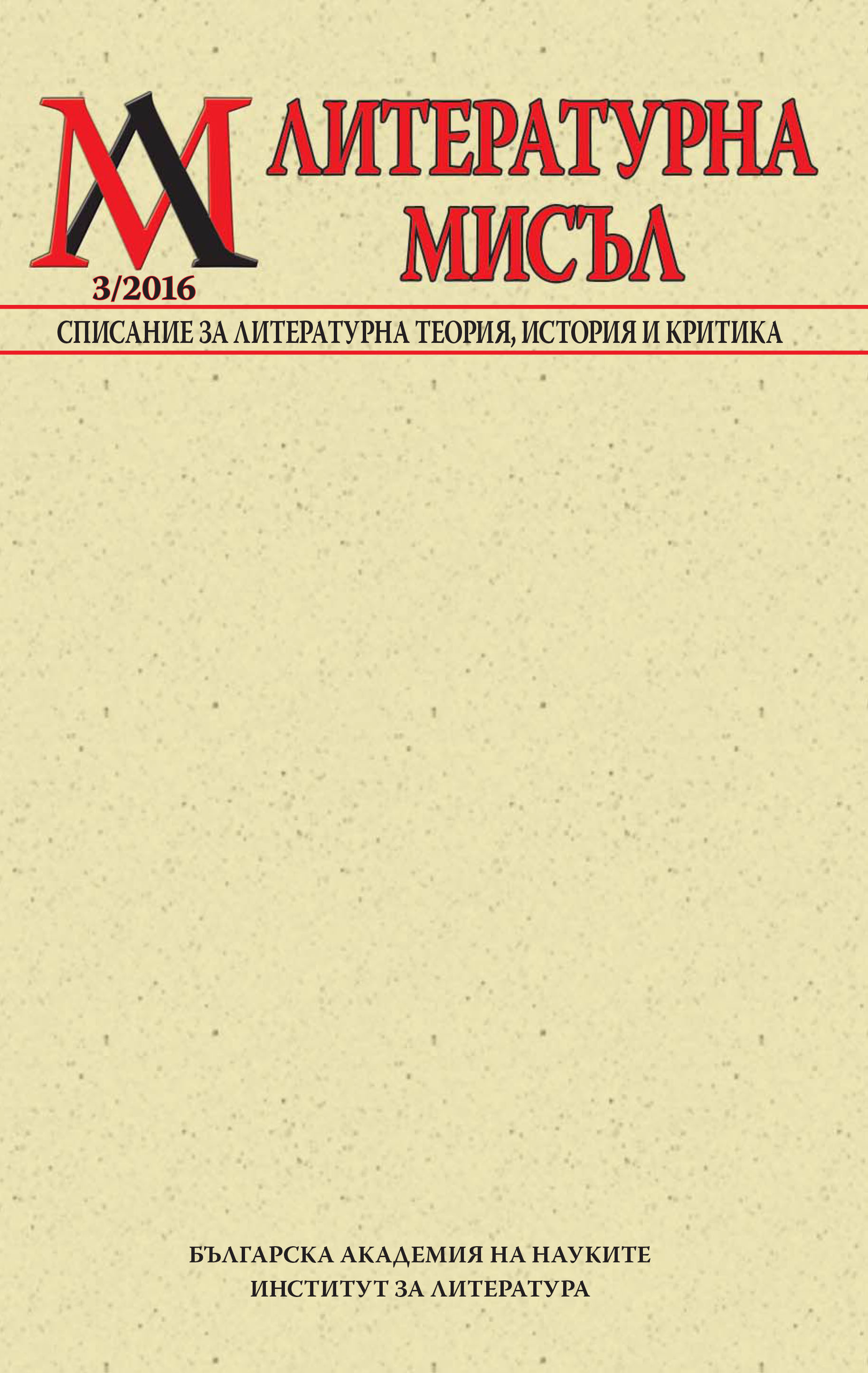Исторически роман, национализъм и (пост)-постмодернизъм. По повод на „Бежанци” от Весела Ляхова
Historic Novel, Nationalism, and (Post)-Postmodernism A propos of “Refugies” by Vesela Lyahova
Author(s): Plamen AntovSubject(s): Studies of Literature, Bulgarian Literature, Nationalism Studies, Migration Studies
Published by: Институт за литература - БАН
Keywords: historic novel; nationalism; new-nationalism; postmodernism; pre- and after-postmodernism; "high" and "low" postmodernism; mass-culture
Summary/Abstract: The article considers a specific tendency in the newest Bulgarian literature, related to the historical novel, at that in its large-scale type, close to the traditions of the classical national epopee: "Refugees" by Vesela Lyahova (2013) as well as some novels by Vladimir Zarev on contemporary themes, but finalizing a multivolume epical narrative - "The Law" (2013) and "Destruction" [Downfall]. These are voluminous works, which by its own way refresh the experience of the historic novel-epopee in its classical type, seemingly tendentiously ignoring the topical postmodern context. - From the other hand, a central position in this tendency is occupied by Milen Ruskov's novel "Summit" (2011), which openly is in this postmodern context, culminates and closes the accumulations of the "high" Bulgarian postmodernism of the poetry of the 1990s: language plays, rewriting of the History, de-monumentalizing of the national-ideological metanarrative as well as of the literary canon which produced it. Despite its difference, these novels are seen as a collective attempt for the long awaited epical reflexion on the radical changes after 1989 year, as a literary philosophy of the history through the national idea's lens.The study undertakes a wide socio-historical and philosophical excursion in order to consider the crisis of the national state as a symptom of the crisis of all grand narratives, historical by character, which are a representation of a general crisis of the collective identity, designating the end of the Modernity.The neo-nationalistic wave after 1989 year is commented on and especially from the beginning of the 21st century - nationalism of new, after-post-modern type, severely fragmented and mixed with neighboring realms such as the religious one, which sweeps away all kinds of prophecies for some Hegelian end of History and designates a renaissance of the collective identification.Through a historical-nationalistic prism, the discussion about the "high" and "low" postmodernism, about their incompatibility end even antagonism, is deepened and adduced in a maximum wide field - simultaneously as substantial qualities in a common dialectical subject and in their historical-developmental sequence. As a shift from the language of the "high" postmodernism toward the next stage of "low", popular after-postmodernism. A stage, which is simultaneously post-, but also (contra-)regressing back toward one pre-modern authenticity. In this way the novels of Zarev and Lyahova are seen simultaneously as non-postmodern and post-postmodern in their dialectical, uroboric coincidence: whether and to what extent their traditional, "classical" language is a deficiency or a surplus, overreaching, stepping across? - Do we have to deal with an authentic naivety, or with irony raised to the second power, i.e. masked as a naivety? Are there quotation marks? (The quotation marks in the "Summit" are more than obvious.) - The answer is in the lack of answer. In the slipping out oscillation between two positions, between original and copy. The identity itself is this, which creates the difference.The same paradox is projected in a wider scheme over the nature of the "low", late post-postmodernism of the mass culture. A (possible) paradox of the language dialectic is enacted - about the relative boundary between post- and pre-, which exactly one second post- may possibly realize.
Journal: Литературна мисъл
- Issue Year: LVIII/2015
- Issue No: 3
- Page Range: 96-122
- Page Count: 26
- Language: Bulgarian
- Content File-PDF

